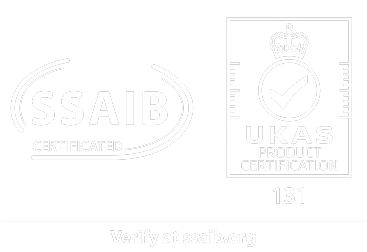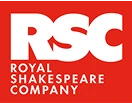culture | change


how we can help
We improve culture, resolve conflict and deliver change compassionately
Experts
Our highly experienced team comprises culture, OD and change experts, HR and ER professionals, lawyers, accredited mediators and coaches. This combination ensures we successfully deliver your objectives within legal and best practice frameworks.
People-Centric
We put your people first, delivering our services compassionately, professionally and sensitively to ensure we protect your brand and culture.
Transformative Solutions
We are focussed on finding the right solution for your organisation and your people. Our wealth of experience enables us to help you build safer and more effective workplaces and deliver transformative change.
exceptional clients













We can help you understand and improve your business culture, and deliver change programmes that enhance your brand and protect your culture.

Founder & Director
expertise
We improve workplace cultures and deliver change transformation
This was a great experience in relation to a particularly tricky issue. The investigation was thorough and handled sensitively
Lockton

Very professional, helpful and supportive service
The Vale Federation

Very comfortable with the level of correspondence and ease of access to officers and advice. Was aware of each step and felt included in the process
Educational Achievement Service
This was a complex matter and the Investigation Report is of a high quality and the conclusions clear and evidence based
University Hospitals of Morecambe Bay NHS Foundation Trust

Good communication, regular updates and clear report
Royal Shakespeare Company

The work undertaken was thorough, comprehensive and well written. All interactions were professional and friendly
NWSSP Legal & Risk Services
find out more
Our brochure explains more about our culture & change services
our team
Our Culture & Change team includes Emily Errington, Anne Linsell, Natasha Weibel and Kate Woosnam
faqs
Frequently asked questions
What is organisational culture?
Why is culture important?
What is a culture review?
We work with your organisation to undertake a solution focussed culture review, which engages with staff, in a wide variety of ways, to listen and learn from them how it really feels to work in a team or organisation.
The purpose of the review is to understand what is working well, what is getting in the way or is challenging and how supported and engaged the team are. Our culture reviews highlight strengths to build on and make recommendations to address issues which are negatively impacting the team. A Culture Review is a valuable tool for improving team dynamics and ensuring a healthy, effective work environment with an engaged workforce.
When should I consider an organisational culture review?
An optimal workplace culture is key to staff engagement and effective performance. When an organisation, or a particular team or department, encounters difficulties, an independent workplace culture review is a very effective way to objectively identify and assess where the issues lie.
Undertaking an independent culture review allows an organisation to gain an honest, unbiased and independent understanding of the workplace culture as staff experience it. It will help to encourage staff feedback particularly in situations where trust and psychological safety are reduced and unacceptable behaviours are apparent.
What signs or issues might suggest a culture review would be helpful for my team or organisation?
The following may be indicators that a culture review would be helpful:
Reducing Employee Engagement Scores: Periodic employee engagement surveys can highlight areas where the organisational culture might need improvement. Concerning low scores in certain areas of the organisation or survey responses may indicate the need for a more in-depth culture insight.
Poor Performance or Low Morale: If the organisation is experiencing issues such as low employee morale, high turnover rates, or a decline in performance, it may be a sign that the current culture is not conducive to productivity and employee engagement. A culture review can help understand reasons for this as well as identify areas for improvement.
Increasing Complaints and Grievances: When staff raise concerns about their experiences and behaviours of others, using formal or informal mechanisms, this could be an indication that trust and psychological safety are reduced within the team.
Leadership Change: When there is a change in leadership, it may be an opportune time to review and potentially redefine the organisational culture. New leaders may have different values and approaches, and aligning the culture with their vision can contribute to a smooth transition.
Organisational Growth: During periods of growth, it’s essential to ensure that the organisational culture adapts and remains consistent with the organisational values.
Organisational Change: When organisations merge or undergo significant changes, understanding and aligning the cultures of the merging entities is crucial for a smooth integration. Understanding the existing cultures and identifying potential cultural clashes can help in planning for a successful transition.
Transformation Initiatives: Organisations undergoing significant innovation or transformation often need a culture that supports change, creativity, and adaptability. A culture review can help ensure that the existing culture aligns with the goals of the transformation programme to help ensure implementation success.
Is now the right time for my organisation to commission a culture review?
Why use ibex gale for a culture review?
What does a culture review cost and what does it involve?
In the initial phase of a culture review, we take time at the start to understand an organisation, in order to make recommendations for how a culture review will be undertaken to meet the need of a team, service or organisation. Together, we establish a mutually agreed review timeline and communication plan. Upon the conclusion of the review, a comprehensive written report and a verbal debrief will be provided, encompassing our findings and offering robust recommendations for organisational considerations.
The cost of a culture review will depend on the size, methods of engaging with staff and complexity of the review. To discuss a potential review and approximate costs please visit our Contact Us page to make contact with the ibex gale culture team.
How does ibex gale monitor the quality of culture reviews?
At ibex gale, we continuously monitor the quality of our culture reviews with:
A supervision system, whereby a supervisor is assigned to all projects to support the team member(s) carrying out the work and monitor quality of service and delivery against timescales;
A peer review process whereby all outcome reports are reviewed by the nominated supervisor prior to release to the client to ensure that they meet our rigorous quality standards; and
We also obtain feedback from our clients on the quality of work that we have produced and their experience of working with us and use that feedback proactively to both benchmark the quality of the work that we produce and develop and enhance our service offering.
What is organisational development?
What is psychological safety?
Psychological safety is the feeling for individuals within a team or organisation that staff are safe to take interpersonal risks such as expressing ideas, asking questions or admitting mistakes without fear of negative consequences, ridicule or bring punished. When psychological safety is high in a team individuals feel comfortable being their authentic self and contribute their best work.
What is a Fearless Organisation Scan?
Who should take a Fearless Organisation Scan?
How is the data from a Fearless Organisation Scan used?
What is coaching?
What is team coaching?
Team coaching is a collaborative and developmental process that helps a team improve how it works together to achieve shared goals. Unlike individual coaching, which focuses on personal growth, team coaching emphasizes collective performance, relationships, and alignment with organisational values and objectives.
A team coach works with the whole team as a system, observing dynamics, facilitating conversations, and guiding reflection. The goal is to enhance communication, trust, accountability, and clarity of purpose. This o3en involves surfacing unspoken issues, strengthening collaboration, and helping the team navigate challenges more effectively.
Team coaching and development is a strategic investment in collaboration, performance and long-term success. It supports the team in learning from its own experiences, building resilience, and sustaining high performance over )me. It can be especially valuable during periods of change, conflict, or when forming new teams. ibex gale have a wide range of experienced coaches to support individuals or teams.
What are psychometrics?
What psychometrics can ibex gale offer?
What is an Employee Engagement Survey?
How can ibex gale support your employee engagement survey?
Our engagement surveys are designed to go beyond surface-level metrics. We work with organisations to understand what truly matters to their people, what motivates them, what hinders them, and what makes them stay or consider leaving. The process begins with careful consultation to tailor the survey to the organisation’s context, values, and objectives. We use evidence-based frameworks to ensure we’re asking the right questions, and we priori)se clarity and confidentiality to support honest feedback.
Once the data is collected, we analyse both quantitative and qualitative responses to identify patterns, outliers, and areas of opportunity. We don’t just hand over results; we take the )me to talk through what they mean. We work collaboratively with leaders or teams to unpack the insights and discuss what’s actionable, without jumping to assumptions or offering one-size-fits-all solutions.
Our aim is to provide a clear, practical understanding of how people are experiencing work, and what can be done to improve it. The focus is always on sustainable, context-aware change, not quick fixes. The engagement survey is not the end goal; it’s a star)ng point for meaningful conversa)on and development.
Ibex gale’s experienced organisational development facilitators work with leaders, teams and organisations to design and deliver interventions that develop organisations to optimise performance.
What is conflict resolution?
Conflict resolution or media)on is a way of addressing and resolving disagreements or disputes between individuals or groups in a compassionate, constructive and respectful way. It involves identifying the root cause of the conflict, understanding different perspectives, and working toward a solution that satisfies all par)es involved.
Conflict resolution can involve open communication, active listening, empathy, negotiation, with the help of a neutral third party, a mediator. The goal is not just to end the conflict, but to strengthen relationships, build trust, and prevent future issues. We believe that in workplaces and teams, strong conflict resolution practices are key to maintaining a healthy, productive environment
What is a Mediator?
What are the benefits of external conflict resolution?
Using an external mediator to undertake conflict resolution brings the benefit of neutrality and objectivity to the conversations as well as the considerable experience of the mediator. The mediator will focus on supporting everyone to feel safe and supported whilst working towards resolution. Naturally for the organisation a speedy and effective resolution to conflict impacts on employee engagement and performance.
What is a Change Project?
Change Projects cover a variety of changes that impact workplaces and employees – such as changes to employee terms and conditions, redundancies, and transfer of employees (TUPE).
When might I consider a Change Project?
A change project could be considered for many reasons in many different circumstances. For example, the ownership of a business has changed and you may wish to make changes to processes or policies. The business environment and sector may have changed (such as supply chain issues, reduced or increased sales) and therefore a headcount or staffing review is necessary. You may have received feedback from staff about your organisational culture that you want to make changes to and are considering ways to improve staff morale such as a new benefits model.
Whatever the reasons or the change project being considered, ibex gale can provide practical and commercial advice on the options. We can deliver a successful project that ensures compliance with legal obligations whilst minimising the impact on employees and the business.
What is a redundancy situation?
Redundancy is essentially where you:
(a) close your business;
(b) close a workplace; or
(c) need fewer employees to do a certain type of work, or to work in a certain place.
As part of a redundancy process, employers should consult their employees on the redundancy, explaining the reason for the redundancies, any steps that have or could be taken to reduce the impact of the redundancy situation, and if there are any available alternative roles that employees can be redeployed into.
Depending on the number of employees being impacted there may be further consultation obligations for employers.
How do you manage a redundancy consultation?
We support organisations planning a reduction in employee numbers following an acquisition/merger, or as part of a cost reduction, efficiency, or rationalisation programme. This may include managing and delivering consultation for multiple redundancies across different locations at different times and for different groups of employees.
We can plan and deliver all aspects of this project from start to finish, including drafting documentation, advising, and supporting managers and engaging employees in a compassionate and robust consultation process.
What is a transfer of employees?
What is TUPE?
TUPE stands for Transfer of Undertakings (Protection of Employment). It is often used as an acronym for situations when employees transfer from one employer to another, when an organisation (or part of one) is transferred from one employer to another OR when a service is transferred to a new provider (such as outsourcing a service).
The TUPE regulations protect your rights as an employee when you transfer to a new employer. It gives you as an employee protection from dismissal immediately before or after a TUPE transfer when the reason is related to the transfer itself. It also provided you as employee with protection in terms of your role, pay and benefits. TUPE sets out information and consultation obligations for both the outgoing and incoming employer. We can support organisations in managing TUPE transfers, including planning consultation and communications with employees, managing due diligence, drafting documentation and ensuring that any transfer is as seamless as possible for all affected.
How do you monitor the quality of your Change Projects?
We work with our clients to ensure we understand their business in order to develop a comprehensive project plan;
We assign a Project Lead who is responsible for the day-to-day running of the project, ensuring that milestones and deliverables are met. The Project Lead liaises with the Project Team and with the client, providing regular progress updates at agreed intervals. By having this regular communication we can ensure that the quality of service and delivery of the project plan is on track, but we can also adjust the project plan if there have been any changes to ensure we remain agile;
We operate a supervision system, whereby a Supervisor is assigned to all projects to support the team members carrying out the work, and to monitor quality of service and delivery against timescales;
We also obtain feedback from our clients on the quality of work that we have produced and their experience of working with us. We use that feedback proactively to both benchmark the quality of the work that we produce and develop and enhance our service offering.
What is Organisational Design
Organisa)onal Design is the process of shaping an organisa)on to that it can effec)vely achieve its goals. It can involve aligning the organisa)on’s structure, roles, process and systems with its strategy, culture and environment. This could be in the form of a restructure of a team, or a department, it could be a change to terms and conditions or reviewing job grades or pay bands.
We can support and guide you through the planning, designing and implementation phases of these types of projects, to ensure that it aligns with the cultural values and objectives, whilst ensuring that staff are engaged in a compassion, people-centric way to ensure that the new Organisational Design is successful delivered and embed within the organisation moving forward.
I have a question that isn’t in your FAQs, what shall I do?
contact us
Speak to a member of our team
contact us
Speak to a member of our team
Our friendly team is ready to answer your questions and provide clear, helpful guidance.